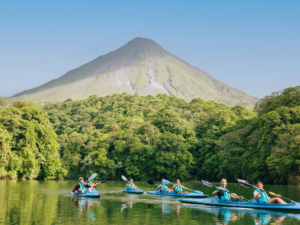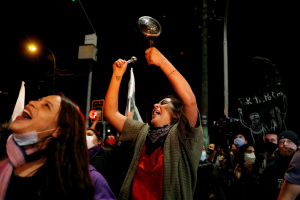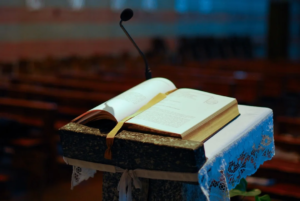Dear participants,
It is a pleasure to address you today.
For many, working in defence of human rights is a vocation. Human rights defenders work out of a deep sense of service to others, and a desire to make a meaningful impact.
In warzones and post-conflict societies, human rights defenders provide support to detainees or victims of torture. They deliver emergency relief and help secure access to healthcare for civilians. They document and expose human rights violations, shed light on the underlying causes of conflict, and call for accountability. They are also key to conflict resolution.
They are the messengers of dignity, justice, and peace.
But the risks of this work are unacceptably high. Killings, kidnapping, detention, harassment, and intimidation – of journalists, humanitarian personnel, human rights monitors, and so many others – are major threats. Across a number of today’s conflicts, such attacks may constitute even war crimes.
Women human rights defenders – and their family members – face acute risks, including heightened exposure to sexual violence and online threats.
Beyond conflict, there is a global pushback against human rights. Some States are taking legal, political, and financial measures to further restrict civic space. Criticism is criminalized, peaceful protests are curbed with force, legitimate non-governmental organisations are labelled foreign agents, and places for people to participate in decisions are shut down.
These developments often force human rights defenders to operate in exile, exposing them to new forms of persecution and repression, including online surveillance and tracking across borders. The full impact of digital technologies on the work and safety of human rights defenders is not yet known.
We are meeting today because we all agree on the need for concrete action to create a safe, enabling environment for human rights defenders. This is not only a legal imperative, but an essential step for a more just and peaceful world.
To that end, States must set up robust and adequately resourced national protection systems. They must be agile enough to react to early signs of threats to human rights defenders. Sufficient funding must also be ensured for civil society-based protection networks at the national level and across borders.
I call on States to prioritize preventing, mitigating, and ensuring accountability for transnational repression of human rights defenders. I urge all governments to push for other States to make these same commitments.
My Office has convened a Global Community of Practice of donors and civil society organisations to improve our collective response to threats to human rights defenders.
Finally, we must all – Governments, NGOs, academia, private sector, religious organisations , the scientific community, international organisations , and more – stand in solidarity with human rights defenders. The risks of this work must not be shouldered by the defenders alone. Concretely, this means advocating for defenders when they are labelled terrorists, foreign agents, or traitors. It means supporting NGOs at risk of being shut down, and engaging with all who have influence when defenders are detained or on trial based on spurious charges.
Dear friends,
Human rights defenders are the pillars of free and open societies and of human rights work. We must do everything we can to make sure they can operate safely wherever they are.
I look forward to hearing the results of your discussions.
Thank you.




